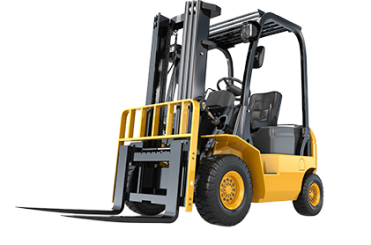The Essential Overview to Leasing Excavators for Building And Construction Projects
Renting out excavators for construction tasks is a critical decision that demands an extensive understanding of various variables to ensure both effectiveness and cost-effectiveness. From selecting the ideal excavator type and dimension to bargaining rental terms and ensuring security procedures, each action plays a crucial function in the total success of your project.
Kinds Of Excavators
Excavators are available in various kinds, each designed to perform specific tasks in construction jobs. The most usual type is the typical excavator, additionally called a spider excavator, which is common on many task websites for its adaptability in digging, material, and trenching handling. These makers run on tracks, supplying security and wheelchair over irregular terrain.
Another essential variation is the mini excavator, valued for its small size and dexterity. Perfect for small to medium-sized jobs, mini excavators master constrained areas where larger devices would have a hard time. They are frequently used for landscape design, utility work, and small demolition.
For tasks requiring prolonged reach, the long-reach excavator is crucial. Outfitted with a longer boom and arm, these machines can operate in locations that are tough to accessibility, such as across water bodies or deep excavations.
Lastly, there are specialized excavators like the suction excavator, which uses high-powered followers to vacuum up dirt and particles, making it suitable for fragile underground utilities. The dragline excavator, an additional specialized type, is often used in massive civil engineering projects like canal dredging and mining as a result of its capacity to raise hefty tons over long distances.
Picking the Right Dimension
Selecting the ideal size of an excavator is vital for the efficiency and success of any type of construction job. The size affects not only the equipment's capacity to handle certain tasks however likewise the functional expenses and site availability. Excavators come in various dimensions, from small devices appropriate for small household jobs to big makers made for extensive commercial or commercial endeavors.
Comprehending the scope of the task is crucial when making a decision on the excavator size. Alternatively, large-scale earthmoving operations, like roadway construction or huge structure digs, necessitate the usage of large or standard excavators.
Take into consideration the site's terrain and access points too. Bigger excavators may deal with difficulties in irregular or limited locations, making smaller sized models a lot more functional. By thoroughly examining these factors, building and construction supervisors can guarantee they select an excavator dimension that enhances performance and minimizes project delays.
Rental Contract Fundamentals

Similarly essential is the thorough breakdown of costs. This consists of the day-to-day, weekly, or monthly rental prices, and any extra costs such as distribution, gas, or cleaning costs. It's recommended to ask about potential penalties for late returns or damages to avoid unanticipated expenses.
The condition of the excavator at the time of rental ought to also be well-documented. Ensure the contract includes a thorough inspection report that notes any type of pre-existing damage. This secures you from obligation for concerns that were present prior to your rental duration began.
Insurance protection is an additional vital element. Validate whether the rental business provides insurance policy or if you require to protect your own plan. Ultimately, recognize the terms for tools maintenance and repair work. Understanding your obligations for upkeep during the rental period will aid preserve the excavator in ideal functioning problem, decreasing downtime and improving project effectiveness.
Maintenance and Security Tips
When managing excavators on a building website, sticking to proper upkeep and safety and security protocols is important for ensuring both functional performance and employee safety and security. Lubricating relocating components and guaranteeing fluid levels are optimal can avoid expensive downtime and expand the maker's functional life-span.
Safety and security actions are similarly important. Operators should be thoroughly trained and certified to handle excavators, understanding the device's restrictions and controls. It's vital to carry out daily evaluations, concentrating on security attributes such as alarms, seatbelts, and emergency situation shutoff changes. Furthermore, maintaining a tidy and orderly worksite minimizes the threat of mishaps. Clear communication procedures, including hand signals and radio communication, need to be developed to work with activities and operations efficiently.
Executing a durable upkeep schedule and promoting a culture of safety and security can alleviate dangers considerably. Constantly seek advice from the producer's manual for details maintenance periods and safety standards. By prioritizing these facets, construction tasks can proceed smoothly, decreasing disruptions and making certain a secure working environment for all employees involved.
Cost-Saving Methods
Effective cost-saving techniques are important for taking full advantage of the return on financial investment when renting excavators for building and construction jobs. One vital technique is to carry out a thorough needs analysis before leasing. Recognizing the specific requirements of your job assists in choosing the ideal kind and size of excavator, preventing unnecessary expenditures on oversized or overly customized tools.
Many rental business use flexible rates structures, specifically for long-term services. Establishing a great relationship with the rental copyright can likewise result in loyalty discounts and far better terms.

Lastly, think about the complete expense of ownership, including transport, insurance policy, and gas. Packing these services with the rental contract can commonly cause an extra positive general plan. By implementing these approaches, building and construction jobs can accomplish significant expense effectiveness while making certain operational effectiveness.
Final Thought
In verdict, the critical option and rental of excavators for building and construction jobs demand a thorough understanding of excavator kinds, proper sizing, and the complexities of rental agreements. Applying cost-saving strategies via thorough planning and negotiation can additionally enhance task performance while regulating expenses.
From choosing the proper excavator type and dimension to discussing rental terms and ensuring safety and security protocols, each action plays a pivotal duty in the total success of your job. heavy equipment rental Bremen GA. The most typical kind is the basic excavator, additionally understood as a crawler excavator, which is common on most task websites for its versatility in trenching, product, and excavating check this handling. By extensively assessing these variables, construction supervisors can guarantee they pick an excavator size that maximizes efficiency and minimizes job hold-ups

Recognizing your responsibilities for upkeep during the rental period will help maintain the excavator in optimal functioning problem, decreasing downtime and boosting task performance.
In verdict, the critical choice and service of excavators for building and construction jobs require a complete understanding of excavator types, ideal sizing, and the details of rental arrangements.